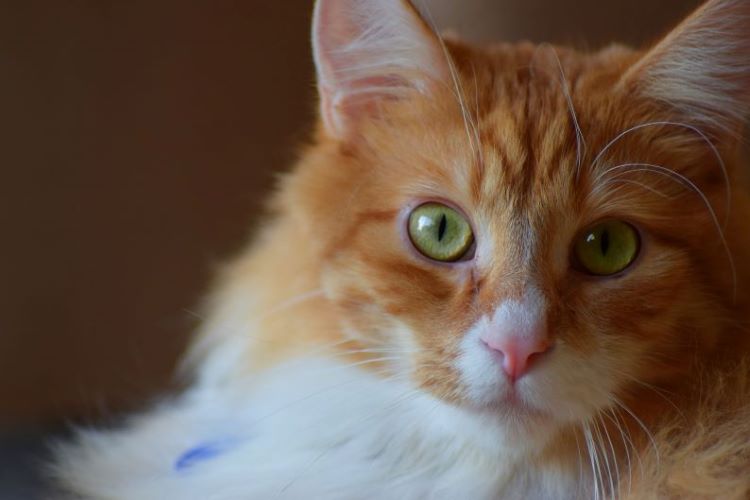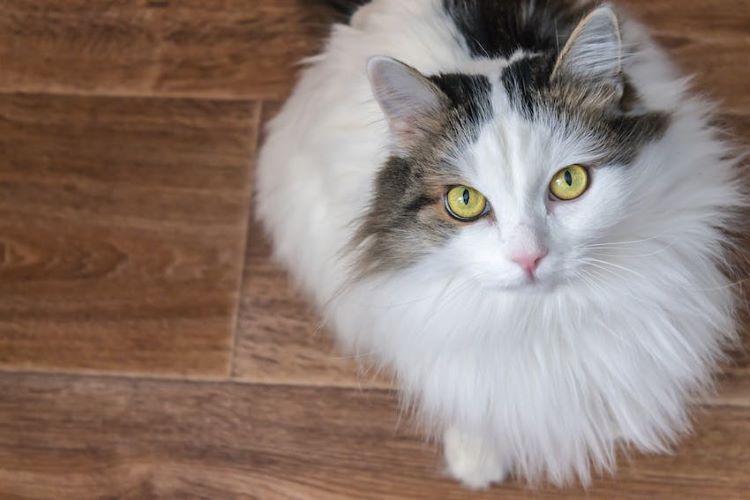Ready to help treat your pet to a healthy life?
Does Marijuana Affect Cats?
By : Kelli Rascoe & Trupanion Staff | Updated Apr 15, 2024

It’s 2024, and marijuana is fully legal in 24 states and counting, as well as in all provinces and territories of Canada. But if you’re a cat owner who enjoys partaking in this kind of extracurricular activity, you’ll want to take some extra precautions with your stash regardless of what the laws are like where you live. While cannabis can cause harmful effects in both cats and dogs, felines may be at particular high risk for a few key reasons.
We’ll get into those reasons in just a bit, but the key thing to note upfront is that both smoke inhalation and edible consumption of marijuana products can be toxic to animals.
If your pet has recently eaten marijuana in any form or breathed it in, call your veterinarian or the Pet Poison Helpline. Depending on how much your pet has consumed and the signs they’re exhibiting, they may need immediate medical attention.
Whether you are a seasoned cat owner or first-time kitten owner, your cat’s health and safety are a top priority as part of being a responsible pet owner. Here’s what you need to know about the effects of weed on cats as well as best practices for keeping your furry friend safe, happy, and healthy.
The effects of marijuana on cats
With marijuana laws easing up more and more around North America, it's important to remember to take extra caution around pets. So, what can happen to cats if they ingest marijuana?
“Marijuana intoxication in cats can happen when they ingest edibles or parts of plants, as well as inhalation of smoke, and can cause variable signs in cats ranging from sedation to agitation,” says Trupanion veterinarian Dr. Caroline Wilde. “Even the smallest ingestion can affect your cat’s health and behavior.
Cannabis toxicity can manifest in a wide range of symptoms for your pet, and these can be mild or severe. Your cat’s heart rate can slow, and in some cases they may even experience seizures or other lasting and detrimental health effects. The bottom line: whether you’re actively using weed products or they’re just sitting around your home, be mindful of both children and pets. Ingestion of any type of marijuana product, including CBD, can have a negative impact.
Why cats may be at higher risk
Dogs are known for their ability to eat or chew on just about anything they can get in their grasp, so they are definitely still at risk of marijuana toxicity. However, cats have the ability to reach a much wider range of places around the home, making safe storage of drug paraphernalia a challenge. And as many cat owners can attest, cats are often drawn to plants of any kind.
Another concern is that marijuana closely resembles catnip. The two are unrelated plant species, but they often look alike when ground up and packaged for retail. If your cat is among the many felines who enjoy catnip, they may be enticed by something that looks similar and attempt to break into the container.
Signs of marijuana ingestion in cats
As a pet owner, it can be hard to detect if your cat has ingested marijuana. But if you notice any of the following signs or suspect your pet has ingested cannabis, seek veterinary attention or contact the Pet Poison Helpline immediately.
- Dilated pupils
- Sedation
- Head Bobbing
- Swaying or seeming wobbly
- Vomiting and/or diarrhea
- Urinary incontinence
- Hyperactivity
- Aggression / agitation
- Excessive vocals
- Seizures (in severe cases)
- Coma (in severe cases)
Ingestion can also cause low heart rate or changes in blood pressure. Because not all effects can be visibly observed, it’s important to seek veterinary treatment right away when you first suspect your cat has ingested marijuana.
Diagnosing marijuana toxicity in pets
“Marijuana can cause variable signs depending on the pet,” Wilde says. “Unfortunately, there are no reliable tests to determine whether a pet has ingested marijuana in any of its forms. Determination of whether a pet has marijuana intoxication is generally based on history and clinical signs.”
Essentially, the only way to determine if your cat has ingested marijuana is knowing if your cat has accessed cannabis products in the first place. And even then, there will be some guesswork involved. Rather than leaving things to chance, consider doing a sweep and make sure all substances have been safely stored away.

Best practices for keeping your cat safe
The best practice for keeping your cat safe is always to keep your personal products in a safe spot where your pet cannot access them, especially when you’re not home. Think behind closed doors, in sealable containers that can’t be lifted or chewed open by even the most curious of paws. All marijuana products, even plants, and edibles should be put away right after use.
Cats love to eat plants! Protect your cat and keep marijuana/THC in any form locked up or stored in a safe place,” Wilde says. “Also, avoid exposing your cat to second-hand smoke. In addition, if you think your pet might have been exposed to any form of marijuana, be honest with your vet. Essentially, we have to know what we are treating to be able to best help you."
It’s also a good idea to consider protecting your pet with cat insurance (if you haven’t already done so, of course). While pet health coverage is not a substitute for at-home safety practices, it can help you make important decisions regarding their veterinary care should any emergencies arise. After all, cats are unpredictable and accidents do happen — a good pet insurance plan will help you say “yes” to veterinary treatment in these situations without having to stop and think about the cost.
Protect pets on 4/20
April 20 or “4/20” has become a popular “weed holiday” for cannabis enthusiasts, and it can be easy for pet safety to fall by the wayside in all the excitement. This is why it is so important to prepare ahead of time and ensure cats and dogs alike will not be put at risk. By taking these steps upfront before you do any celebrating, you can ensure everyone has a good time:
- Know where your pet is at all times.
- Provide a smoke-free area for pets and keep them there until smoke is cleared from the space you’re in.
- Consider smoking only outside and away from your pet.
- Don’t use any marijuana products — inhalable, topical, or edible — around your pet.
- Keep your space clean — avoid leaving any drug paraphernalia sitting out.
Pet safety goes beyond just marijuana products. Since 4/20 tends to be a holiday with a lot of snacks involved, it’s important to be mindful of any munchies you have out and practice pet food safety as well. Chocolate is toxic to both cats and dogs, for example. When in doubt about any food, it’s wise to follow the same rules as cannabis products — just keep it away from your pal to avoid surprise visits to the veterinarian.
